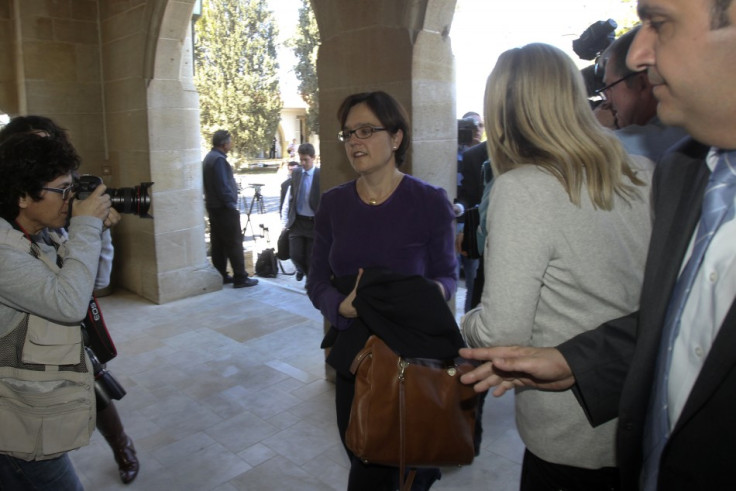Cyprus Crisis: Focus Switches to ECB As Emergency Lending Scheme Questioned

European Central Bank officials will meet in Frankfurt to weigh up perhaps the most important decision in the banking crisis in Cyprus that could threaten its membership in the single currency.
The central bank's governing council will convene to discuss its financial support programme for Cyprus as the nation's banks remain closed for a third consecutive day and its stock exchange for a second after lawmakers unanimously rejected a controversial levy on deposits that would have secured a €10bn bailout from the European Union.
"A race with time will now be on in order to find a compromise - with the timeline largely determined by the need to reopen banks," said Societe Generale economist Anatoli Annenkov in a client note. "While banks can probably stay closed for a few more days to provide working space, eventually they will need to open, with a high risk of deposit flight when they do. We expect the ECB to assure liquidity in the short term, in order to allow for a political solution."
The ECB's governing council said it had "taken note" of the Cypriot vote and that it would continue to provide central bank support, through a programme called Emergency Liquidity Assistance (ELA), "within the existing rules".
The rules allow the central bank of Cyprus to continue lending to its domestic banks but only with the permission of the Governing Council, which comprises the heads of the 17 central banks which use the single currency and a further six members of the ECB's Executive Board.
The Cyprus central bank can lend - at a higher rate of interest - to its commercial banks in exchange for collateral that includes Cyprus government bonds and treasury bills. It is meant to shoulder any potential losses on the loans by itself, and not to "pool" them among the other members of the Eurozone. However, Cyprus government bonds are not accepted by the ECB as acceptable lending collateral and have been rated as "junk" status by the major ratings agencies for several months.
The ECB's Governing Council can shut down the ELA lending if it feels the national central bank isn't able to absorb potential losses or is lending to domestic banks are that either technically or official insolvent.
Joerg Asmussen, and ECB Executive Board member from Germany, told Die Zeit magazine in an interview published Wednesday that the solvency of Cypriot banks "must be viewed as non-existent ... if there is no agreement soon on an aid programme that allows a quick recapitalisation of the banking sector."
Lawmakers late Tuesday unanimously rejected a rescue proposal that would have seen all depositors in the country's banks pay a portion of the €16bn needed to stabilize the sector and shore-up its public finances. The vote, which included 19 abstentions, was a humiliating blow to both newly-elected President Nicos Anastasiades as he attempts to navigate the twin demands of his Eurozone partners, who insist that Cyprus' savers contribute to region's fifth bailout, and his constituents, whom he promised to protect from raids on their bank deposits.
German Chancellor Angela Merkel said Wednesday that she would look at any alternative proposals from Cyprus "with great respect" but has suggested a preference for taxing deposits over and above a threshold of €100,000.
If Cyprus were to exempt savers within the €100,000 "insured" deposit threshold it would need to tax on the €38bn in accounts above that level at a rate of around 15 percent, according to Barclays' research, in order to reach the €5.8bn target required by the European Union and the International Monetary Fund before releasing the addtional €10bn in bailout funds.
© Copyright IBTimes 2025. All rights reserved.





















